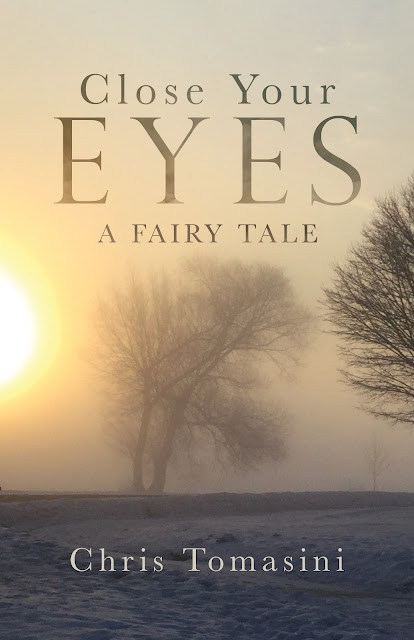Close Your Eyes: A Fairy Tale
By Chris Tomasini
Set in early 1400s Europe, Close Your Eyes is a sincere, yet light-hearted and lustful, ode to love. As Samuel, the court jester, struggles to describe why his friends, Agnieszka the cook, and Tycho the story-teller, fled the King of Gora's service, he learns that love was the beating heart behind everything that happened in the castle.
He learns as well that more ghosts than he knew of walked the midnight halls, and that the spirit of Jeanne d'Arc haunted his friend, and once slid into bed with Tycho, daring him to leave - to take to the cold roads of Europe, where he had once wandered orphaned and alone, and find his destiny there.
Publication Date: December 16th, 2021
Publisher: Independently published / Self published
Page Length: 258 pages
Genre: Historical Fiction
Grab a copy HERE!
EXCERPT
The first year Tycho spent with us at Gora he was like a child running frenzied through a kitchen full of Christmas delicacies. The gossip which arose about him was voluminous. I often sat in the castle kitchen, a mug of beer in my hand, listening to what the women said about the boy. What amused me most, as I watched them roll their eyes when his name was again mentioned in a less than lustrous light, was that they adored Tycho. They pretended they didn’t, not wishing to be teased, but I could see it in their eyes, in their rapt attention when the boy walked into a room, in their troubled breathing when he touched his hands to their shoulders or hair.
I don’t know what drew them to him, but it was much more than his youth and good looks. He was playful and irreverent and the aura of foreign lands hung about him. Tycho could speak a dozen languages fluently, he could tell those magical stories, twinkle his eyes seemingly at will, and when they twinkled for you it felt like you were sharing something with him, a sort of blissful astonishment at being alive.
It was also in the way he moved. Tycho eased through a room like a breeze across a field. He was around you; you raised your face to allow the wind to sweep close, and then he was gone, around a table talking to someone else. He was here and there, here and gone, coming and going, a smile for you a smile for someone else, and from watching him in the kitchen, in the dining hall, amongst crowds, I think what made him so sought after was that people felt a need to be alone with him, to possess him unreservedly, if only for a few short moments.
I have spoken, in the years since he left, to many people about Tycho. I asked the women why they chased him, why they desired him, when he was unabashedly a scamp who was sleeping with every woman in the castle. I asked other of our friends why it felt such a privilege to be alone with him, and I think we all knew, unconsciously, that the road was not yet done with Tycho, and that he had only been given to us for a short time.
Ahab has spoken to me of a Greek historian named Herodotus, and of his fascination with a people named the Scythians, who lived around the Black Sea. Ahab thought that Tycho resembled these people, who did not live in cities, or settle farms, but rather followed their herds of cattle across endless prairies, riding on wagons, carrying their tents with them. The Greek word for this way of life was apori – to be a nomad, to be without a home, to be inaccessible to others.
I have been a child of the road. I lived that life for three years, and Ahab, with his delight in things ancient, things intellectual, did not grasp the fundamental difference between Tycho and the Scythians. To be a Scythian, I imagine, was to carry your life with you – your family, your belongings, your past, your history. But Tycho was a single boy, an orphan, alone upon a road.
The road forces you to decide if your destination is worth the hardship – and making this decision is the traveler’s burden. But Tycho was more than a traveler. He was a wanderer who did not even have a destination. I think it was this sadness which many of us saw in the boy, beneath the charm and the winning smile. We saw the sadness of a soul which would forever be in transit, which would never know a home, and which would forever be apori.
Chris Tomasini lives in Ontario, Canada. He has studied creative writing via Humber College's "Correspondence Program in Creative Writing", and through the University of Toronto School of Continuing Studies.
In the 1990s Chris taught English as a Second Language and had stops in England, Poland, and Japan.
Since 2000, Chris has worked in bookstores, publishing, and in libraries.
Chris is married with two children, and can often be found (though not very easily) on a bicycle on country roads in central Ontario.
Website • Instagram • TikTok • BookBub • Amazon Author Page • Goodreads
Follow the tour HERE!





Thanks so much for hosting Chris Tomasini today, with an enticing excerpt. xx
ReplyDelete